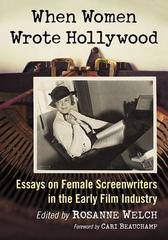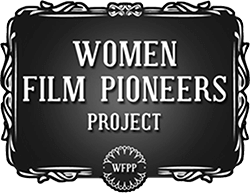Watch this entire presentation
Subscribe to Rosanne’s Channel and receive notice of each new video!
Transcript:
Now, I think it’s really important to think about also another thing that we use in our class. Jordan Peele, right? He wrote which horror film? Get Out. Thank you very much. He got an Oscar for writing that. That’s how different, unique, and creative that film is. He gave us not a final girl because if you haven’t seen the movie she’s a bad guy. Spoiler alert. He gave us the final guy. This is a movie about the final guy — the guy who survives where no one else survived before right? He sees the horror that’s happening and he uses his brain to get out of it. So I had to think about that. So does he qualify for these definitions? He is the last one left standing. All the other people who came before him have been incorporated you know white people have been put into their brains and it’s weird. Ehhh, I don’t know if he’s definitely young he’s not necessarily innocent because he and his girlfriend have definitely had sex right but he’s a really good nice guy so maybe he qualifies as innocent. I don’t know and then we think about in the end — spoiler alert — he kills the bad girl by strangling her right. Is that a feminine way to kill people? Poisoning is more a feminine thing. I don’t know but it’s not a masculine way either. So it’s a little bit right a little bit. Maybe it’s not the perfect definition but he’s definitely the last guy standing when we get to the end of this movie. Which is quite brilliant.
A Note About This Presentation
A clip from my keynote speech at the 10th Screenwriters´(hi)Stories Seminar for the interdisciplinary Graduation Program in “Education, Art, and History of Culture”, in Mackenzie Presbyterian University, at São Paulo, SP, Brazil, focused on the topic “Why Researching Screenwriters (has Always) Mattered.” I was especially pleased with the passion these young scholars have toward screenwriting and it’s importance in transmitting culture across the man-made borders of our world.
To understand the world we have to understand its stories and to understand the world’s stories we must understand the world’s storytellers. A century ago and longer those people would have been the novelists of any particular country but since the invention of film, the storytellers who reach the most people with their ideas and their lessons have been the screenwriters. My teaching philosophy is that: Words matter, Writers matter, and Women writers matte, r so women writers are my focus because they have been the far less researched and yet they are over half the population. We cannot tell the stories of the people until we know what stories the mothers have passed down to their children. Those are the stories that last. Now is the time to research screenwriters of all cultures and the stories they tell because people are finally recognizing the work of writers and appreciating how their favorite stories took shape on the page long before they were cast, or filmed, or edited. But also because streaming services make the stories of many cultures now available to a much wider world than ever before.
Many thanks to Glaucia Davino for the invitation.
* A portion of each sale from Amazon.com directly supports our blogs
** Many of these books may be available from your local library. Check it out!
† Available from the LA Public Library
Podcast: Play in new window | Download
Subscribe: RSS
![33 Get Out and The Last Boy from When Women Write Horror with Dr. Rosanne Welch [Video] (1 minute 28 seconds)](https://rosannewelch.com/wp-content/uploads/2020/10/rmw-cpp-horror-33.png)
![32 You Should Write What (Emotions) You Know from Why Researching Screenwriters Has Always Mattered [Video] (28 seconds)](https://rosannewelch.com/wp-content/uploads/2020/10/rmw-sao-paolo-32.png)



![32 Women As Survivors from When Women Write Horror with Dr. Rosanne Welch [Video] (40 seconds)](https://rosannewelch.com/wp-content/uploads/2020/10/rmw-cpp-horror-32.png)
![31 If You Censor Storytellers…You Censor Culture from Why Researching Screenwriters Mattered [Video] (36 seconds)](https://rosannewelch.com/wp-content/uploads/2020/10/rmw-sao-paolo-31.png)


![31 The Importance of Names from When Women Write Horror with Dr. Rosanne Welch [Video] (53 seconds)](https://rosannewelch.com/wp-content/uploads/2020/10/rmw-cpp-horror-31.png)
![30 Michael Wilson – Censored from Why Researching Screenwriters (has Always) Mattered [Video] (34 seconds)](https://rosannewelch.com/wp-content/uploads/2020/10/rmw-sao-paolo-30.png)

